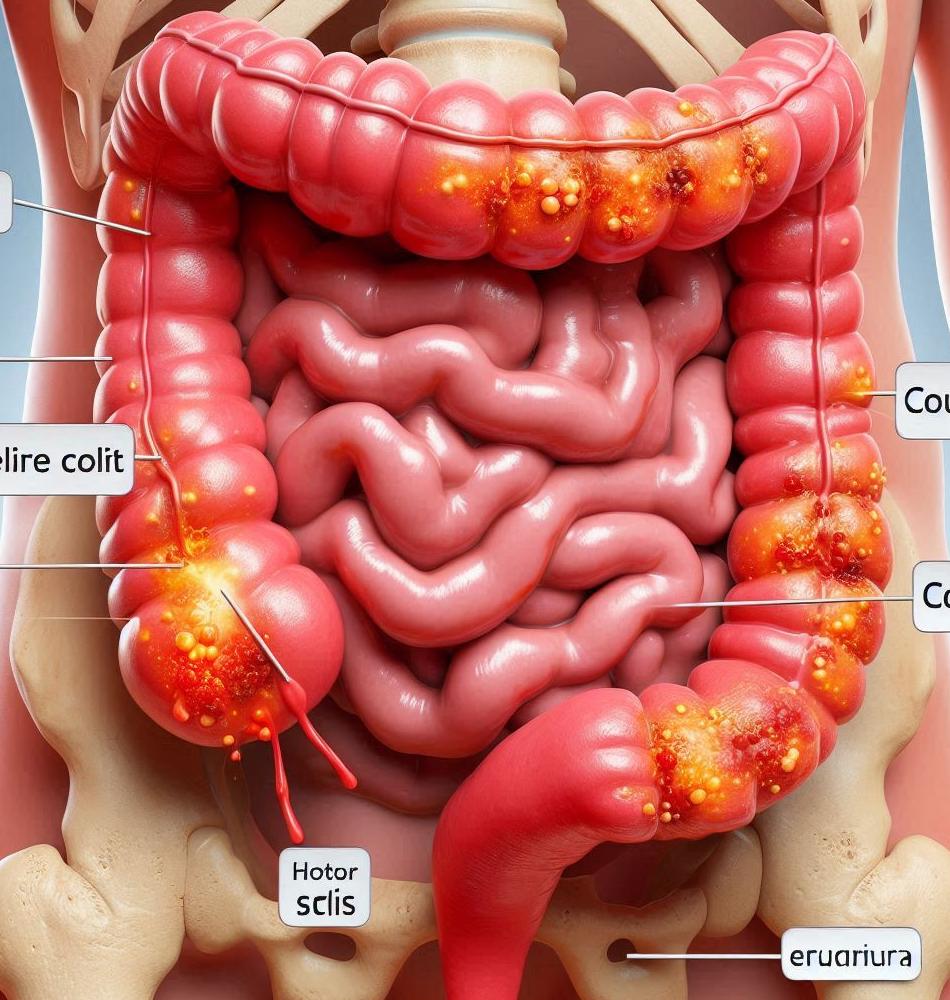Ulcerative colitis can be a challenging condition to navigate, and its impact on your life can be profound. This chronic inflammatory bowel disease primarily affects the colon and rectum, leading to symptoms such as abdominal pain, diarrhea, and rectal bleeding. If you or a loved one are seeking ways to heal from ulcerative colitis, this guide will provide you with essential insights and practical tips to manage and improve your health effectively.
Understanding Ulcerative Colitis 🩺
Before diving into the healing aspect, it's essential to understand what ulcerative colitis entails. This inflammatory bowel disease is characterized by inflammation in the colon's inner lining, leading to a myriad of uncomfortable symptoms.
Symptoms of Ulcerative Colitis
Ulcerative colitis can present a range of symptoms, and understanding them is crucial for proper diagnosis and treatment. Common symptoms include:
- Abdominal cramping and pain
- Frequent and urgent diarrhea, often mixed with blood
- Fatigue due to blood loss and dehydration
- Loss of appetite and weight loss
- Anemia from chronic blood loss
What Causes Ulcerative Colitis?
The exact cause of ulcerative colitis remains unknown. However, several factors may contribute to the development of this condition:
- Genetic predisposition
- Environmental triggers such as diet and stress
- Autoimmune responses
Dietary Adjustments for Healing 🍽️
Your diet plays a vital role in managing ulcerative colitis. Making the right dietary adjustments can aid in healing and help minimize flare-ups.
Foods to Include
When dealing with ulcerative colitis, focus on a balanced diet with foods that support gut health. Here are some suggestions:
- Lean proteins such as chicken, turkey, and fish
- Fruits and vegetables, especially those that are cooked rather than raw
- Low-fiber grains such as white rice and pasta
- Dairy products that are low in lactose
Foods to Avoid
While there are beneficial foods, some can aggravate your condition. Consider limiting or avoiding:
- High-fiber foods, particularly raw fruits and vegetables
- Spicy foods and fried foods
- Dairy products if you are lactose intolerant
- Alcohol and caffeine
Staying Hydrated
Diarrhea can lead to significant fluid loss, making hydration crucial. Aim to drink plenty of water and consider electrolyte solutions to maintain your hydration balance.
Medication Options for Ulcerative Colitis 💊
In conjunction with dietary changes, various medications can assist in managing ulcerative colitis. Consult with a healthcare professional to find the right treatment for you, but here are commonly prescribed medication types:
Aminosalicylates
Aminosalicylates are often the first line of treatment. They help reduce inflammation in the intestinal lining. Some examples include:
- Mesalamine
- Sulfasalazine
Corticosteroids
If symptoms escalate, corticosteroids may be utilized to bring down inflammation. They are usually short-term solutions due to potential side effects:
- Prednisone
- Budesonide
Immunosuppressants
To manage severe cases or prevent flare-ups, immunosuppressive medications may be necessary:
- Azathioprine
- Mercaptopurine
Alternative Therapies for Ulcerative Colitis 🌱
While traditional treatments are effective, many people seek alternative therapies as complementary strategies for healing. However, these should always be discussed with your healthcare provider:
Probiotics
Probiotics may help restore the balance of healthy bacteria in your gut. However, research is ongoing. Speak to your doctor about options.
Meditation and Stress Management
Stress can trigger flare-ups for many. Practices such as meditation, yoga, and deep breathing exercises can help mitigate the impact of stress on your body.
Exercise Regularly
Regular, moderate exercise can enhance your overall well-being and support digestive health. Aim for at least 30 minutes of physical activity most days.
Frequently Asked Questions ❓
People often have various questions when dealing with ulcerative colitis. Here are some common queries:
- Can ulcerative colitis be cured?
- How long do flare-ups usually last?
- What lifestyle changes can help manage ulcerative colitis?
- Are there any natural remedies effective against ulcerative colitis?
- Can diet really affect ulcerative colitis symptoms?
Consultation with Specialists 🥼
Monitoring and adapting to ulcerative colitis is essential, and a team of specialists can help you navigate this journey. Different professionals contribute to your overall care:
Gastroenterologists
Your primary healthcare provider may refer you to a gastroenterologist for specialized care in managing gastrointestinal disorders.
Nutritionists
Dietary guidance from a nutritionist can help tailor a diet plan suited for your needs, taking into consideration your symptoms and lifestyle.
Conclusion 🌈
Healing ulcerative colitis requires a multifaceted approach, including dietary adjustments, medication, alternative therapies, and specialist consultations. Embarking on this journey can be daunting, yet with the right tools and team, you can improve your quality of life. Remember, every individual’s experience is unique, so work closely with healthcare professionals to create a personalized healing plan that fits your circumstances. Your path to better health starts with understanding and making informed choices.

